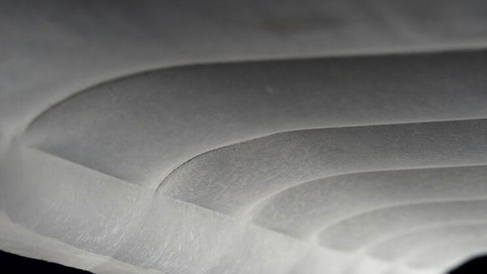Automating concrete construction: digital processes for whole-life sustainability and productivity

CSIC Investigators are collaborating with colleagues from the Universities of Bath and Dundee to drive a new culture in the construction industry to improve whole-life sustainability and productivity. CSIC is a project partner and Director Dr Jennifer Schooling chairs the steering group. Automating Concrete Construction (ACORN) is one of four research and development projects funded by UK Research and Innovation (UKRI) under the Industrial Strategy Challenge Fund ‘Transforming Construction’. The three-year project will address the core aims of the programme: designing and managing buildings through digitally enabled simulation and constructing quality buildings through offsite manufacturing approaches. ACORN aims to create a culture that takes a holistic approach to the manufacture, assembly, reuse and deconstruction of concrete buildings. This will lead to a healthier, safer built environment and a culture that is built on the concept of using enough material, and no more.
The challenge
Today, the widespread use of flat panel formwork for concrete leads to materially inefficient prismatic shapes for the beams, columns, and floor-slabs in buildings. This practice, which has been around since Roman times, is both architecturally constraining and a key driver behind the high embodied carbon emissions associated with concrete structures. As much as half of the concrete in a building could be saved, if only we approached the use of the material in a different way.
Optimised concrete
Concrete starts its life as a fluid and can therefore be used to form structures of almost any shape, given the right mould geometry. ACORN will capitalise on this material property to drive the minimisation of embodied carbon in new building structures. The team will create an end-to-end digital process to automate the manufacture of non-prismatic building elements, capitalising on the recent proliferation of affordable robotics and bring them into an industry ripe for a step-change in sustainability and productivity. Something as simple as allowing beams, columns and floor-slabs to have the shape they need to take load, rather than the shape they need to be easily formed, allows a complete rethink of the way material is used in buildings.
Fabrication of concrete elements
By moving the manufacture of structural concrete elements into a highly controlled factory environment, ACORN aims to ensure that buildings can become more sustainable and the construction industry more productive. Considerations such as the materials to be used, how reinforcement is placed efficiently, how to take into account whole-life value, and how to organise the design process to take advantage of the new possibilities of robotics, will all be considered within the sphere of the project.
Demonstration building
The key to transforming this conservative industry is to lead by example. One of the most exciting parts of the project, is the proposed construction of two bays of a full-size prototype office building, to be completed at the BRE Innovation Park in Watford. One bay will be left with an exposed structure to show the methods and techniques used in its manufacture, the other bay will be fitted-out as an office building, with roof, walls, façade and internal finishings, to show how the techniques translate into an architectural solution.
The demonstration building will serve multiple purposes. On an academic level, it will contribute to the research agenda by acting as a living laboratory. Embedded sensors will collect and share useful live data about how the building is performing structurally, as well as what loads the different parts are carrying. The BRE Innovation Park is visited by 20,000 people annually and data will also be collected from those visitors in user surveys, to evaluate the new appearance. The building’s eventual deconstruction will also be an opportunity to verify how the whole-life value drivers for automation perform in reality.
Benefits
The ACORN project is expected to produce a number of benefits. Reducing reliance on concrete will have a positive environmental effect – construction accounts for nearly half of the UK’s carbon emissions and concrete alone for five per cent of global CO2 emissions. There is also huge cost-saving potential – ACORN’s research has identified close to £4bn in cost savings for UK construction per annum, that would arise directly from better consideration of material use. Globally, a mere one per cent reduction in construction cost would save $100bn annually. ACORN’s focus on automated manufacturing and digital processes to reduce both fabrication and build time are key parts in realising better value.
The project will benefit from the contributions of 12 industry partners, including architects, engineers and building contractors, who will work alongside the ACORN team to ensure outputs will bring value to industry. The professions will also benefit with architects able to explore a new form of construction; engineers gaining insights into the real loads such structures have to carry during their lifetime; and contractors having the tools they need to increase quality control, productivity and fabrication time, while de-risking the construction site.
ACORN is tackling the UK government’s Construction 2025 targets head-on. By automating construction, moving it off-site, and developing a culture of using just enough material, and no more, the project will lower costs, reduce delivery times and dramatically reduce carbon emissions.
Dr Paul Shepherd, Principal Investigator and Senior Lecturer at the University of Bath
Contact: Dr John Orr
Team: Bath: Dr Paul Shepherd, Professor Tim Ibell. Cambridge: Dr John Orr, Dr Ajith Parlikad. Dundee: Dr Saverio Spadea
